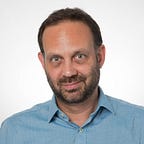My (Brief) Literary Autobiography
Reflections of a path toward literacy as a means of continued existence.
“I am convinced that Milton himself could not write a Paradise Lost now. Minds are less important for literature than cultures; our minds are as good as they ever were, but our culture is dissolving.” ~ Allen Tate, in a letter to Donald Davidson
The poetics of my generation have been severely influenced by the catchy advertising jingle, the 30-minute comedy, the one hour and forty minute tragic drama (complete with happy ending), the cliché-infested pop song and, among many other atrocities, a pandemic spread of cultural Attention Deficit Disorder. You will note I didn’t mention literary influences, and that is because my ‘culture’ provided few worthy of mention.
Shakespeare was force-fed to me in high school, of course, but I may as well have been reading Chinese — his language was so foreign (and only remotely accessible due to familiarity with the King James Bible, which was also a language not my own). Even Tolkien, who I read on my own to enhance my skills at D&D, was a fatiguing stretch of my attention. Rock and roll biographies were, in one way, the fortunate first step toward my literary education, for reading them I discovered the poetry of Jim Morrison, the first poetry I ever connected with as a teenager.
Enter the Mentors
In my late teens, playing in bands, I acquired a mentor (and exceptional drummer), Jim Maddox, who exposed me to Bob Dylan, Neil Young, J.J. Cale, Steve Forbert, Townes Van Zandt, Tom Waits, Gram Parsons, the Stones… Kerouac, Ginsberg, Bukowski, Miller, Celine, Hesse… I was transfixed by Jim’s world. I began to search out anything connected to such writing, a pursuit that led me to Blake, Rimbaud, Anais Nin, Hamsun…
In my mid-20s, still under Jim’s tutelage, I was gifted another guru, Dale Ogletree, who helped me mellow a bit with more great music and conversation and taught me that sometimes it can be good to model oneself after electricity or water (the elements in general) and take the path of least resistance. From Dale I discovered more great music (Leonard Cohen, etc.) as well as Hazrat Inayat Khan, Viktor Frankl, and a number of metaphysicians I fear I mayn’t ever be ready for. But from this renewed spiritual interest I sought and found more, most notably Henry David Thoreau (whom I also hadn’t connected with in high school). I can credit Thoreau somewhat with my decision to return to school at age 28, and it was in my university classes, under a minority handful of great professors, that I discovered Orwell, Hemingway, Virginia Woolf, Dorothy Parker, Whitman, Melville, Dickinson, Eliot, Donne, Homer, Lao Tzu… Nietzsche, Schiller, Marx, Freud, Hegel, Kant, Locke… And, since I was often bored with the American university focus on responding to criticism (rather than the text itself), I wandered on my own into Jung, the Kabbalah… Sandburg, Stevens, Sappho, Heaney… I can credit haiku and Heaney’s first four books with having taught me more about efficient use of words than anyone or anything prior or since.
At the point when I was becoming disillusioned with the quality of education I was receiving for my buck, I chanced upon a living master, a poet-critic-turned-musician, who accepted me as a sort of bumbling apprentice. Doug drew me from the cheap going-nowhereness of open-mic ego-fests with the promise of actually learning the craft. Akhmatova, Milosz, Tagore, Levine, Hall, Bly, Knott, Blackburn, Gilbert… and far more. He taught me that great poems are a conversation with all the masters in history, restored my earlier inclinations to merge words with the rhythms of music, and, most importantly, that the best writers are/were insatiable readers.
In addition to these three primary influences were those of individual poets, writers, musicians and such sometimes within but typically on the fringes of particular scenes going on in and around Portland, Oregon. The Subterranean Beat Revival (Mike Molotov & Chris Cottrell), though fortunately now defunct, was for a short time a gathering of energy and inspiration. The I Love Mondays Borders Books Reading Series (Dan Raphael), Bold Sky Reading Series (Sage Cohen), Ice Cream Renaissance Readings (Chris Luna) and regular soirees at The Cave (Doug Marx) were great venues for raising consciousness, poetic and otherwise. Likewise, the much too infrequent Goat Roast (Bill Shively), Walla Walla Poetry Party (Charles Potts), and Backyard BBQ/Poetry/Music Parties (again, Doug Marx). Additionally, as the first “just a poet” among fiction writers at the Multnomah Village Writers’ Group (Laura Stanfill & Dave Wechner), it forced me to think hard enough about poetics to be able to defend certain aspects and, perhaps, to infect some poetry into prose — and vice versa.
To backtrack, however, to the very beginning, despite the ailments of the culture I inherited, my mom — herself (formally) only high school educated — read and read and read to me as a child. This developed into a lust for my grandma’s set of World Book Encyclopedias, with which I would spend hours on the hard floor cross-referencing the treasures I found there. Without access to books in the developmental stages of early childhood, I would have likely lost interest in reading altogether during my high school years, when the oft-arbitrary canon first began to offend my sensibility. Looking back, I cannot fathom the meaninglessness my life would’ve had if I did not love so much to lie in bed and read, for example, a dictionary for pleasure.
Prague, Czech Republic — 9 June 2007
